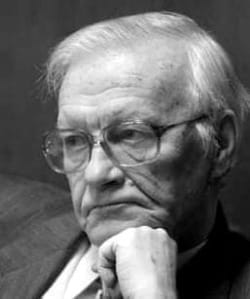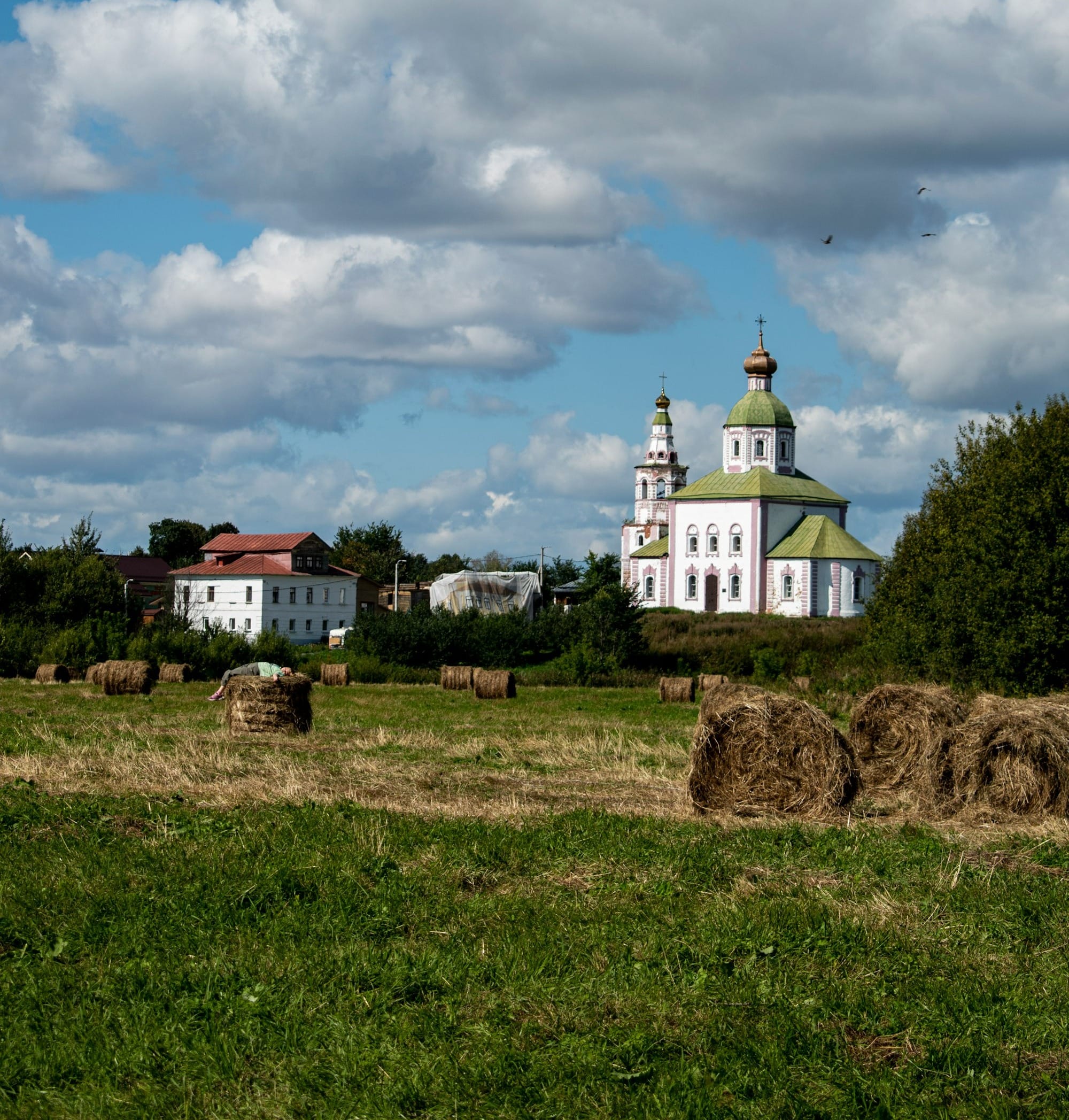The Inner Gulag in Leonid Borodin’s Partings: Solzhenitsyn’s Quiet Companion.
Borodin’s Partings maps not prison camps but the inner gulag—consciences dulled by compromise, truths traded for comfort. Paired with Solzhenitsyn’s thunder, his whisper warns: freedom is lost first in silence.

◳ In an era haunted by neo-Marxist revivals, cultural relativism, and spiritual shallowness, a slim Soviet novel offers a tonic of moral clarity.
Aleksandr Solzhenitsyn thundered. From The Gulag Archipelago to the samizdat cri-de-cœur “Live Not by Lies,” he shattered the Soviet façade with prophetic force. Leonid Borodin—a fellow Orthodox believer twice imprisoned for “anti-Soviet agitation”—worked in a different register. His 1984 novel Partings moves in a minor key, tracing not the gulag’s epic horrors but the slow suffocation of one ordinary conscience. Together the two Russians form an antiphony: Solzhenitsyn plays the trumpet blast; Borodin, the confessional whisper. Read side by side, they deliver a single indictment of totalitarianism and a single exhortation to live in truth.
Partings centres on Gennadi, a young Moscow literary man drifting through Brezhnev’s “era of stagnation.” He navigates a milieu of pliant Party academics and cocktail-party dissidents, greeting everything with the gesture he calls his “marvellous” defence: a shrug. Cynicism spares him sacrifice but empties him of purpose.
A reporting trip to Siberia jars that detachment. In a tiny taiga village of the “wooden Russia” Gennadi meets Tosya, the innocent daughter of a priest. Her faith, as luminous as the winter sky, awakens his numbed conscience. He vows to marry her and begin anew, far from Moscow’s intrigues.

Back in the capital, reality tightens its coils. He needs money, so he ghosts a propaganda memoir he despises. An old girlfriend, Irina, announces she is pregnant; the KGB arrests his dissident sister. Squeezed by debt, guilt, and fear, Gennadi postpones Siberia, marries Irina, and is—Borodin writes with lethal simplicity—“swallowed back into the life he had grown to revile.” The parting of the title is two-fold: from Tosya, and from the self he might have been.
Gennadi never denounces anyone, never signs a false confession, never swings a truncheon. He simply agrees to keep silent, to shrug, to live by half-truths.
Solzhenitsyn mapped the empire of camps; Borodin diagrams the interior cell. He shows how tyranny wins not only by midnight knock but by persuading decent men to trade one small truth for one small comfort—until nothing is left but compromise. Gennadi never denounces anyone, never signs a false confession, never swings a truncheon. He simply agrees to keep silent, to shrug, to live by half-truths. “One word of truth shall outweigh the whole world,” Solzhenitsyn proclaimed in his Nobel Lecture; Borodin supplies the counter-example of a man whose every withheld word tips the scale toward servitude.
The novel’s most caustic lines skewer the intelligentsia. “The intellectual’s constitution,” Gennadi observes, “permits only one object of worship—oneself.” That vanity, Raymond Aron warned in The Opium of the Intellectuals, renders brilliant minds uniquely susceptible to ideological intoxication. Borodin shows the pathology up close: father a smug Marxist professor, mother and sister fashion-plate rebels, friend Zhenka an entrepreneurial cynic. Each masks self-interest in lofty rhetoric; each ends spiritually bankrupt.
Borodin wrote as a believer; his cure for nihilism is faith. Tosya’s humility recalls the peasant piety Solzhenitsyn celebrated—and the anthropological constant Pope John Paul II defended when he insisted that freedom without truth “cannibalises itself.” Gennadi gropes for that truth but lacks Isaiah Berlin’s hard-won wisdom: “Out of the crooked timber of humanity, no straight thing was ever made.” Unable to accept imperfection, he oscillates between utopian dreams and cynical resignation, until convenience wins.
In Tosya’s village we glimpse an alternative Russia, older than Lenin and immune to slogans. There, the priest baptizes infants in defiance of atheist decrees; villagers mark feast-days the state pretends do not exist. Their quiet fidelity embodies what Czesław Miłosz called “spiritual resistance”—the refusal to let the lie inside.
Why revisit Partings now? Because its maladies are ours. Western society may lack gulags, yet soft coercions—social-media mobs, institutional orthodoxies, careerist taboos—can still entice the Gennadi in each of us to shrug.
Why revisit Partings now? Because its maladies are ours. Western society may lack gulags, yet soft coercions—social-media mobs, institutional orthodoxies, careerist taboos—can still entice the Gennadi in each of us to shrug. Neo-Marxist grand narratives promise utopia at the price of intellectual conformity; cultural relativism whispers that commitment is naïve. Borodin warns that both roads converge in a desert where nothing is worth a sacrifice—and where, therefore, nothing is safe from power.
By portraying compromise as tragedy rather than mere pragmatism, Partings complements Solzhenitsyn’s thunder with a necessary interior proof. It reminds comfortable readers that the battle for freedom is fought first in private decisions: to sign or not sign, to repeat the slogan or keep silent, to shrug or to stand. Lose that skirmish and the larger war is already lost.
When post-Soviet Russia honoured Borodin with the Solzhenitsyn Prize (2002), it acknowledged a shared vocation. Both men believed literature is not decoration but moral memory. Solzhenitsyn chronicled the cataclysm; Borodin preserved the everyday erosion that made the cataclysm possible. We need both records. The thunder shocks us awake; the whisper explains why we fell asleep.
"Do not shrug away your soul. In a culture tempted by fashionable dogmas and numbing relativism, that imperative may be the most urgent lesson literature can offer."
Re-reading Partings in 2025, one hears Borodin’s soft imperative: do not shrug away your soul. In a culture tempted by fashionable dogmas and numbing relativism, that imperative may be the most urgent lesson literature can offer. Let Solzhenitsyn continue to roar against the lie; let Borodin pray for the conscience that still trembles at a single compromise. Between the two—a trumpet blast and a confessional hush—truth may yet be heard. ◳
“I was utterly convinced that an intellectual could never be anything but an intellectual, was simply not capable of being anything else, that his intellectuality would, sooner or later, erode his faith or erode whatever he'd masked it with . . . For example, intellectuals like to dress themselves up as peasants . . . but it never works. The intellectual's constitution is impervious to such things - it permits only one object of worship - oneself. Generally speaking, an intellectual in the contemporary version is an exceptionally resourceful and, essentially, pitiful being.”
― Leonid Borodin, Partings





